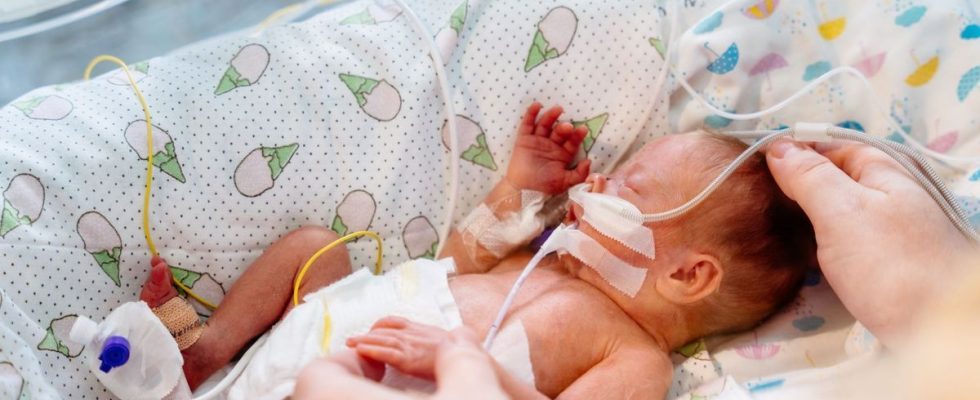Published on
Updated
Reading 2 min.
in collaboration with
Dr Odile Bagot (Gynecologist-obstetrician)
According to the results of an American study, one in ten babies born prematurely in the United States is associated with exposure of pregnant women to phthalates . These compounds are very widespread in our environment, particularly in plastics. Dr Odile Bagot, a gynecologist who is a member of the Doctissimo expert committee, gives us her advice on how to protect yourself as much as possible.
Chemicals present in plastics, phthalates are compounds that soften plastics and make them flexible. PVC windows, shower curtains, food storage boxes… We find them everywhere.
What are the risks for pregnant women?
In this study, American scientists analyzed the urine of a cohort of more than 5,000 pregnant women in the United States.
Results: Women with the highest levels of phthalates in their urine samples also had a 50% increased risk of giving birth prematurely, compared to other pregnant women. According to researchers, these molecules have the ability to “rush labor” and promote “early births.”
One in ten premature births caused by phthalates
The researchers later extrapolated the findings of their study to the entire American population. An alarming figure emerges: nearly 56,600 premature births could be linked to exposure to phthalates in 2018. Or around 10% of births in the country that same year.
And the United States would not be the only ones concerned. On average 5 to 10% of premature births in most other countries could be linked to this chemical compound. Far from being trivial, these preterm births have consequences on the health of these children, but also on medical and social expenses, which experts estimate to be between 1.6 and 8.1 billion dollars for the United States. .
Replacing DEHP with other phthalates is worse
This is not the first study to point out the dangers of these chemicals. This awareness, particularly regarding DEHP, a certain type of phthalate, has pushed several plastic manufacturers to try to replace them with other compounds from the same chemical group. Without success, according to scientists, who estimate that “alternative phthalates are associated with even greater effects than DEHP“.
When questioned, Odile Bagot, gynecologist and member of the Doctissimo expert committee, confirms the results of this work. “There is indeed a correlation between the reduction in gestational age – and premature births – with phthalates. The more we find in mothers’ urine, the lower the gestational age and the greater the risk of premature birth: women then give birth before 37 weeks of amenorrhea, compared to 40 or 41 normally.
But how to protect yourself from phthalates? Dr Odile Bagot recalls that they are mainly found in plastics. “There are some in the PVC of windows, shower curtains, food containers, textiles… Also be careful with perfumes, of all kinds but especially indoor perfumes, which should be avoided by pregnant women..
The specialist also recommends other simple actions: do not heat plastic and be wary of plastic devices that heat up, such as internet boxes or kettles. “Be careful not to put food, especially hot and greasy food, in plastic containers. It is generally better to favor glass for food. she concludes.
